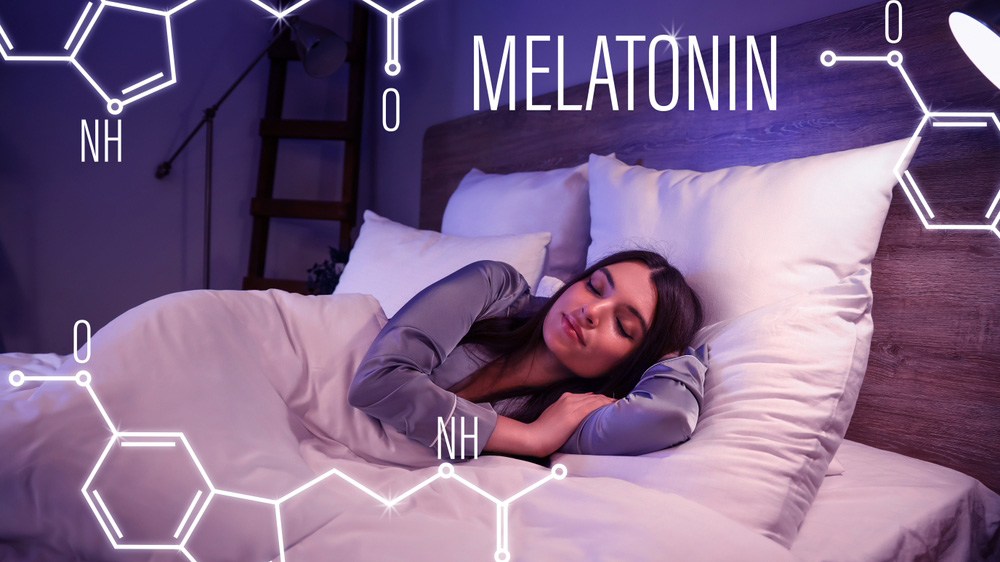Hormonal regulation plays a pivotal role in our overall health, and sleep is a key factor in this process. Far from being just a passive state, sleep is central to maintaining a healthy balance of hormones that affect everything from our energy levels to our mood. Each night, our hormones perform a finely-tuned ballet to rejuvenate and restore our bodies. How does sleep influence hormonal regulation, and why is it crucial for our health? Let’s delve into the fascinating world of sleep and its hidden powers.
Sleep: An Essential Hormonal Regulator
Sleep is far from a waste of time. In fact, while we rest, our body actively works to maintain its health balance. The secretion of hormones closely depends on our sleep cycles, with fluctuations directly impacting our physical well-being. For example, deep sleep cycles, including REM sleep, play a crucial role in cellular regeneration and the release of specific hormones.
Among these, melatonin and cortisol are particularly influenced by sleep quality and duration. Melatonin, known as the “sleep hormone,” begins its work at night, helping the body fall asleep and ensuring restorative rest. On the other hand, cortisol is released towards the end of the night, preparing the body for daytime alertness. A good night’s sleep maintains a balanced secretion of these hormones, but when sleep is disturbed, this balance falters, leading to noticeable effects.
The Impact of Sleep on Hunger Hormones: Leptin and Ghrelin
Sleep also affects our appetite and fat management through hunger hormones: leptin and ghrelin. Leptin, secreted by fat cells, signals the brain that the body has enough energy and reduces hunger. Ghrelin, conversely, stimulates appetite, signaling it’s time to eat.
When we don’t get enough sleep, leptin levels decrease while ghrelin levels rise, leading to an increased feeling of hunger. As a result, sleep deprivation not only causes cravings but often leads to a preference for high-fat and sugary foods, which the brain associates with quick energy sources. This hormonal imbalance can create a vicious cycle, contributing to weight gain and an increased risk of obesity.
Sleep and Glucose Regulation through Insulin
Insulin, another crucial hormone, is also influenced by sleep. It helps regulate blood sugar by facilitating the absorption of glucose into cells. Studies show that chronic sleep deprivation leads to insulin resistance, which can lead to metabolic diseases like type 2 diabetes.
When sleep is of good quality and sufficient in quantity, insulin works harmoniously to keep blood sugar levels optimal. However, insufficient sleep disrupts metabolism, and the pancreas struggles to keep up, resulting in excess sugar in the bloodstream. Over time, this can severely impact cardiovascular health.
Sex Hormones and Fertility
Few people realize that sleep also affects sex hormones like testosterone and estrogen, which are vital for reproduction and sexual health. During deep sleep stages, testosterone production peaks in men. This surge is crucial for libido, muscle strength, and overall energy. In women, sleep plays a role in regulating menstrual cycles and estrogen production.
Lack of sleep not only lowers testosterone levels but also disrupts the menstrual cycle in women, reducing fertility chances. These hormonal imbalances can also affect mood and decrease libido. Therefore, quality sleep is essential for maintaining sexual health and a balanced reproductive system.
Sleep as an Ally for Well-being Hormones: Serotonin and Endorphins
Beyond physical hormones, sleep also influences our mood and mental state through well-being hormones like serotonin and endorphins. Serotonin, produced in the brain, plays a fundamental role in regulating mood, sleep, and appetite. By sleeping well, we optimize serotonin production, which helps balance our mood and avoid depression.
Endorphins, released during sleep, create a general sense of well-being. After a restful night, endorphin levels peak, contributing to a feeling of relaxation and satisfaction that lasts throughout the day.
The Consequences of Sleep Deprivation on Hormonal Regulation
Lack of sleep, or poor-quality sleep, acts as a disruptor of hormonal balance. By disrupting hormonal secretion rhythms, it induces a “hormonal storm” that affects both physical and mental health. Notably, sleep deprivation leads to an increase in cortisol, the stress hormone. Elevated cortisol can cause anxiety, high blood pressure, and reduced immunity.
Additionally, when sleep is disturbed, the body enters “survival mode” and slows down metabolism to conserve energy. This temporary adaptation, if repeated, can weaken organs and increase the risk of chronic diseases.
Conclusion: Sleep, the Conductor of Well-being
Sleep should never be neglected; it is the silent guardian of our health and happiness. Thanks to sleep, our hormones work in harmony to foster a healthy, balanced, and dynamic life. Whether it’s weight management, physical performance, libido, or mood regulation, everything comes down to one common factor: sleep quality. It’s not an exaggeration to say that a good night’s sleep is one of the best prescriptions for a healthier, more fulfilling life. So, grab your pillows! Let’s indulge in a rejuvenating and beneficial hormonal festival every night.
Sources :
- National Institutes of Health (NIH). “The Impact of Sleep on Hormonal Regulation and Overall Health.”
- Harvard Medical School. “Sleep and Hormones: Understanding the Connection.”
- American Psychological Association (APA). “How Sleep Affects Hormone Levels and Metabolic Health.”
- Mayo Clinic. “Sleep, Hormones, and Weight Gain.”
- Centers for Disease Control and Prevention (CDC). “Sleep and Its Influence on Health Outcomes.”


